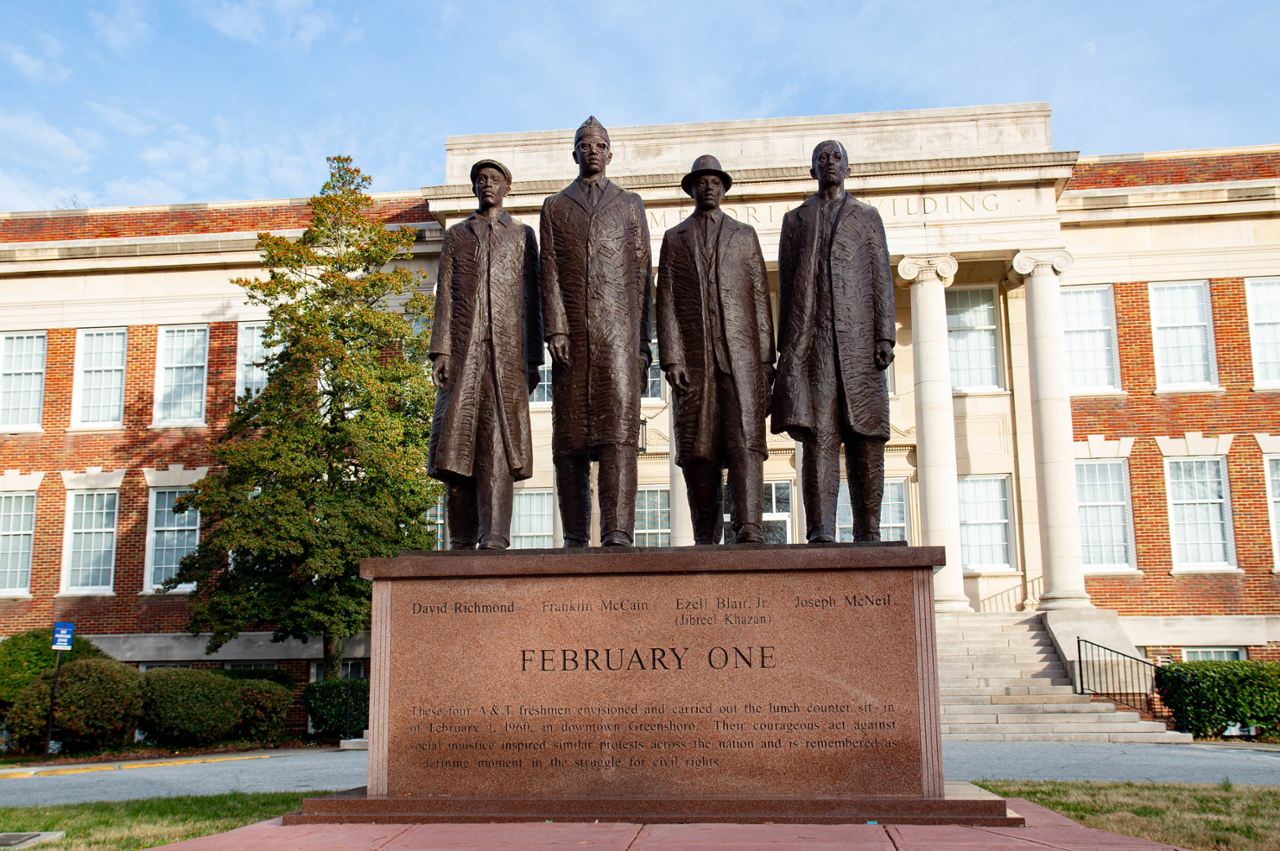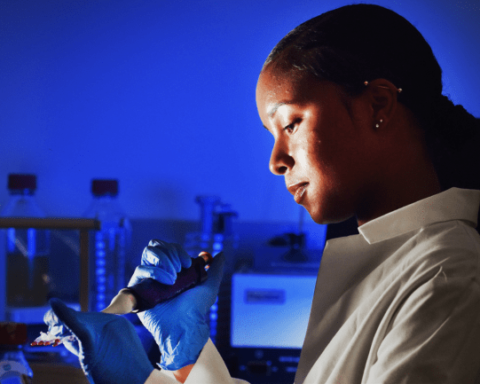By Todd Simmons
Researchers at North Carolina Agricultural and Technical State University have secured more than $100 million in research and sponsored program contracts and grants for the second consecutive year, underscoring the university’s continued growth as a leading doctoral research institution.
N.C. A&T faculty and student researchers brought in more than $102 million in FY2024, raising to nearly $250 million the amount of research funding earned over the past two fiscal years. Researchers brought in three major projects in FY23 totaling $50 million that pushed last year’s total to $147.4 million.
Over the past five years, contract and grant funding has grown to $485 million, cementing A&T’s status as one of North Carolina’s top three public research universities and the nation’s leading public, historically Black research institution. With new faculty joining A&T this fall, research expanding in recently established centers of excellence and additional doctoral degree programs coming online, the university projects continued growth in 2024-25.
“North Carolina A&T faculty continue to build on their success as outstanding scientific researchers and grow the reputation of our university as a place where important science is being done,” said Melissa Hodge-Penn, Ed.D., A&T’s interim vice chancellor for Research. “We’re developing awareness of our major focus areas, such as autonomous vehicles, bioengineering, health care delivery and a wide range of significant issues for African Americans. It’s exciting to witness our continued ascent.”
Among the projects showcasing the university’s growth:
- The National Institutes of Health awarded $5.8 million over a five-year period to establish the Genomics Research and Data Science Center for Computation and Cloud Computing (GRADS-4C) led by Joseph L. Graves Jr., Ph.D., in the College of Science and Technology and Kristen Rhinehardt, Ph.D., in the College of Engineering. GRADS-4C’s mission is to “develop an educational and hands-on research training network with resources in computational genomics, data sciences, and cloud computing to investigate and improve human health, as well as develop the future workforce, particularly among underserved populations.”
- The National Science Foundation (NSF) awarded a 10-year grant worth up to $160 million to establish an NSF Regional Innovation Engines in the Piedmont Triad, one of 10 such engines across the nation. The Piedmont Triad Regenerative Medicine Engine is a collaborative effort led by Wake Forest University, with N.C. A&T, Winston-Salem State University, Forsyth Technical Community College and industry partners ReMDO and Axiom Space as core team members. A&T’s contributions include development of biomaterials and bioengineering development and expertise in adult education that will support “an innovation ecosystem to stimulate workforce development, job creation, and economic growth through the development of technologies that benefit the emerging regenerative medicine industry.” A&T received $931,814 in FY24.
Additional support and collaborations include:
- The College of Engineering established a partnership with two regional innovation hubs that received funding from the Department of Defense as part of the CHIPS and Science Act of 2022 to “promote economic growth as they develop the physical, digital and human infrastructure to support success in microelectronics research.” The CLAWS regional hub, led by North Carolina State University, focuses on bandgap semiconductors and also partners with industry giants like Wolfspeed. The University of Southern California leads the CA DREAMS hub, creating a coalition including The Boeing Co., HRL Laboratories and Lockheed Martin.
- Leila Hashemi-Beni, Ph.D., and applied science and technology doctoral student Tewodros Syum Gebre, received support from Microsoft under the company’s “Accelerating Foundation Models Research” (AFMR) collaboration. The pilot project they conducted used “models available through Microsoft’s Azure Open AI Service to develop a system that will lead to advancements in traffic management using physic informed deep learning.”





